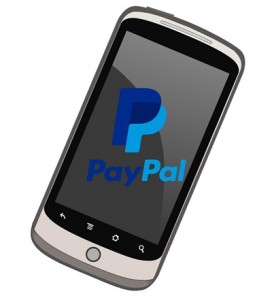As a standalone company, PayPal is adopting a mobile-first strategy
PayPal is now a standalone company being traded on the Nasdaq and it has adopted a mobile-first strategy. The company has come to establish a very prominent position in the mobile commerce space, where it has become one of the more influential entities therein. As the company has now become separate from its former owner eBay, PayPal will adopt a greater focus on the mobile sector. This focus may further increase the company’s standing in the mobile commerce market.
PayPal looks to expand its existing mobile solutions
According to PayPal CEO Dan Schulman, PayPal is set to become a mobile-first platform through the development of new mobile products. The company will also work to enhance its existing mobile solutions, which include those developed by Venmo, Braintree, and Xoom. Braintree, in particular, is expected to become a more prominent tool for PayPal, due to its expertise in the mobile commerce space.
Improving mobile platforms will allow PayPal to engage more consumers
 PayPal also intends to drive higher levels of engagement through the mobile space. Part of the company’s strategy involves the introduction of new services that will be used on a variety of mobile platforms. PayPal will be expanding its one-click purchasing feature, called One Touch. The company is also working on making its payment processing faster. PayPal has already succeeding in increasing this processing speed by 50%.
PayPal also intends to drive higher levels of engagement through the mobile space. Part of the company’s strategy involves the introduction of new services that will be used on a variety of mobile platforms. PayPal will be expanding its one-click purchasing feature, called One Touch. The company is also working on making its payment processing faster. PayPal has already succeeding in increasing this processing speed by 50%.
In-store mobile commerce is a new opportunity for PayPal
The company is also looking to capitalize on in-store mobile payments. These payments are becoming more popular among retailers that are looking for new ways of effectively engaging mobile consumers. In-store mobile payments may be a good opportunity for PayPal to expand beyond the digital space, as it can offer retailers with an effective way to participate in the mobile commerce sector. Several retailers have already embraced PayPal as a way to allow consumers to make purchases directly from their mobile devices, rather than having to use traditional forms of commerce, such as physical currency and credit cards.
Survey shows that more people are using their mobile devices when shopping
Retailers may need to become more mobile-centric, as consumers begin relying more heavily on their smartphones when they shop. SessionM, a mobile loyalty company, recently released the results of a survey of 12,000 randomly selected smartphone users in the United States, questioning them about their mobile shopping behavior. According to the survey, 85% of respondents said that they were quite involved in mobile commerce, with many suggesting that their mobile commerce activity increased over what it had been over a year ago.
Mobile shopping activity is on the rise among smartphone users
The survey shows that approximately 15% of respondents said that their mobile shopping had increased significantly. Of those interested in mobile commerce, security and poor user experiences were cited as major barriers that are prohibiting the further growth of e-commerce and mobile shopping. Notably, more than 90% of consumers noted that they made a purchase with their mobile device in the past 90 days. The vast majority of these consumers, approximately 73%, said that they made a mobile purchase in a physical store.
Many consumers use their devices to compare prices and research products they are interested in
 When it comes to using a smartphone in a physical store, 54% of consumers used their devices to compare prices on products that they were interested in. Another 48% used their smartphones to look up product information, with 42% using their devices to check product reviews online. Notably, many people used their smartphones to look for special deals, such as coupons, and any loyalty programs that they could take advantage of.
When it comes to using a smartphone in a physical store, 54% of consumers used their devices to compare prices on products that they were interested in. Another 48% used their smartphones to look up product information, with 42% using their devices to check product reviews online. Notably, many people used their smartphones to look for special deals, such as coupons, and any loyalty programs that they could take advantage of.
Retailers have new opportunities to engage mobile consumers
Because of the large number of consumers that have begun to rely on their smartphones to shop, retailers have new opportunities waiting for them in terms of marketing. Loyalty programs are, perhaps, the most promising opportunities facing retailers. These programs provide consumers with rewards for their loyalty, and shoppers have shown particular interest in these programs as they can lead to money saving opportunities and access to special deals.
 PayPal also intends to drive higher levels of engagement through the mobile space. Part of the company’s strategy involves the introduction of new services that will be used on a variety of mobile platforms. PayPal will be expanding its one-click purchasing feature, called One Touch. The company is also working on making its payment processing faster. PayPal has already succeeding in increasing this processing speed by 50%.
PayPal also intends to drive higher levels of engagement through the mobile space. Part of the company’s strategy involves the introduction of new services that will be used on a variety of mobile platforms. PayPal will be expanding its one-click purchasing feature, called One Touch. The company is also working on making its payment processing faster. PayPal has already succeeding in increasing this processing speed by 50%.
 When it comes to using a smartphone in a physical store, 54% of consumers used their devices to compare prices on products that they were interested in. Another 48% used their smartphones to look up product information, with 42% using their devices to check product reviews online. Notably, many people used their smartphones to look for special deals, such as coupons, and any loyalty programs that they could take advantage of.
When it comes to using a smartphone in a physical store, 54% of consumers used their devices to compare prices on products that they were interested in. Another 48% used their smartphones to look up product information, with 42% using their devices to check product reviews online. Notably, many people used their smartphones to look for special deals, such as coupons, and any loyalty programs that they could take advantage of.